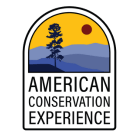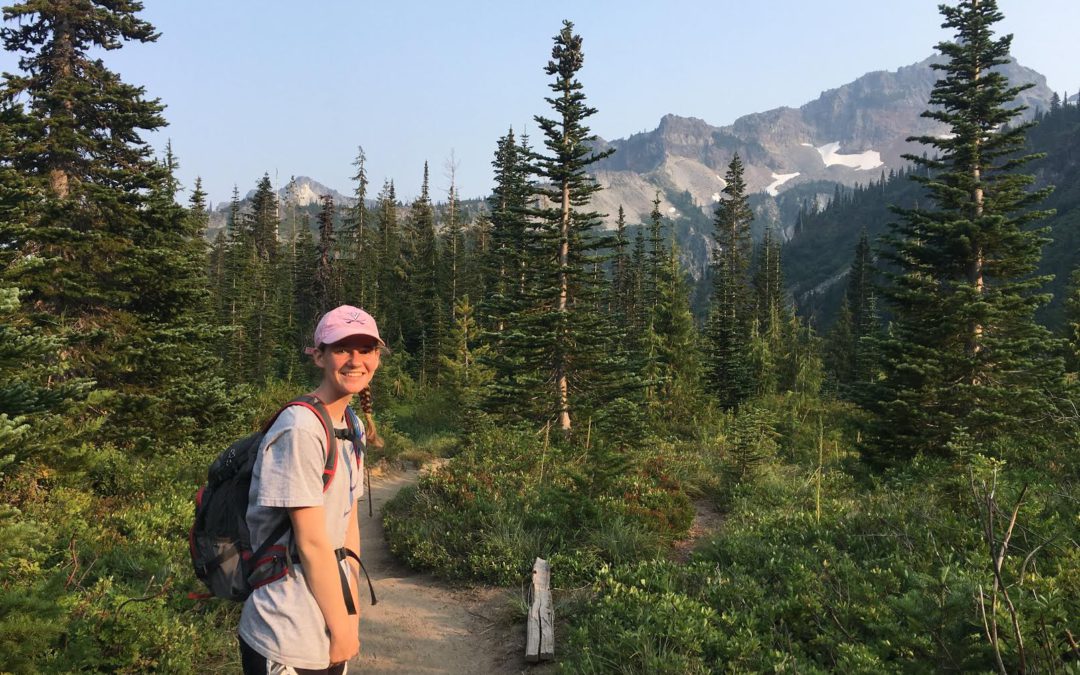Member Name: Maggie Weaver
Pronouns: she, her, hers
Dates as ACE AmeriCorps Volunteer: June 26, 2020 – present (900 hr term, 450 hr term)
Service Location: ACE Crew Southwest
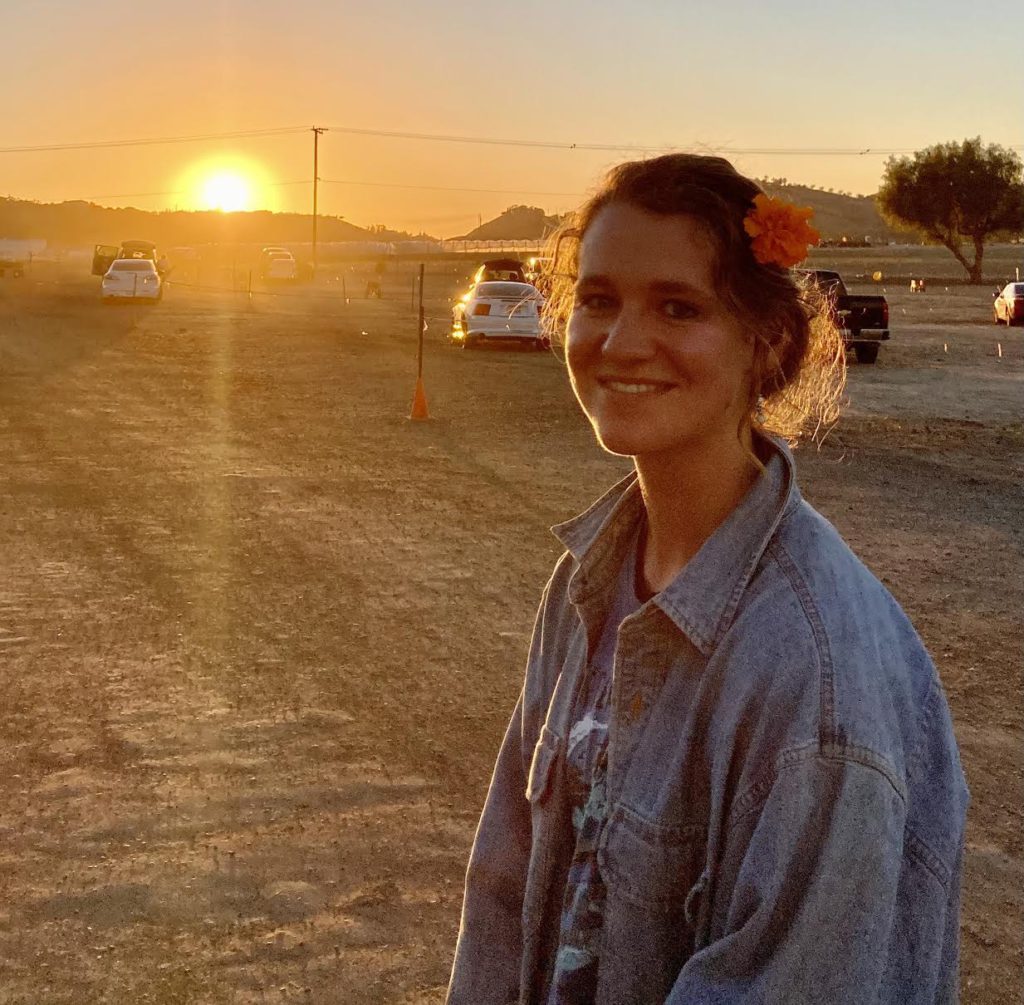
Q: What were you doing prior to joining ACE?
A: I joined ACE right after graduating college, so I was finishing my undergraduate degrees in Biology and Creative Writing at my state school, the University of Virginia.
Q: How did you hear about ACE and AmeriCorps?
A: I found ACE through job posts on LinkedIn and Conservation Job Board. When COVID hit and I finished all my classes online, I suddenly had a lot more time to search for what my future step would be. I really wanted to become involved in conservation fieldwork/ be outside a lot, and ever since I visited beautiful nature spots like White Sands NP and Death Valley NP at different points in college, I knew I wanted to move out west. So when I saw a job posting for an ACE Southwest 900 hr. term with chainsaw training, it seemed like a great opportunity that aligned with my future hopes and goals.
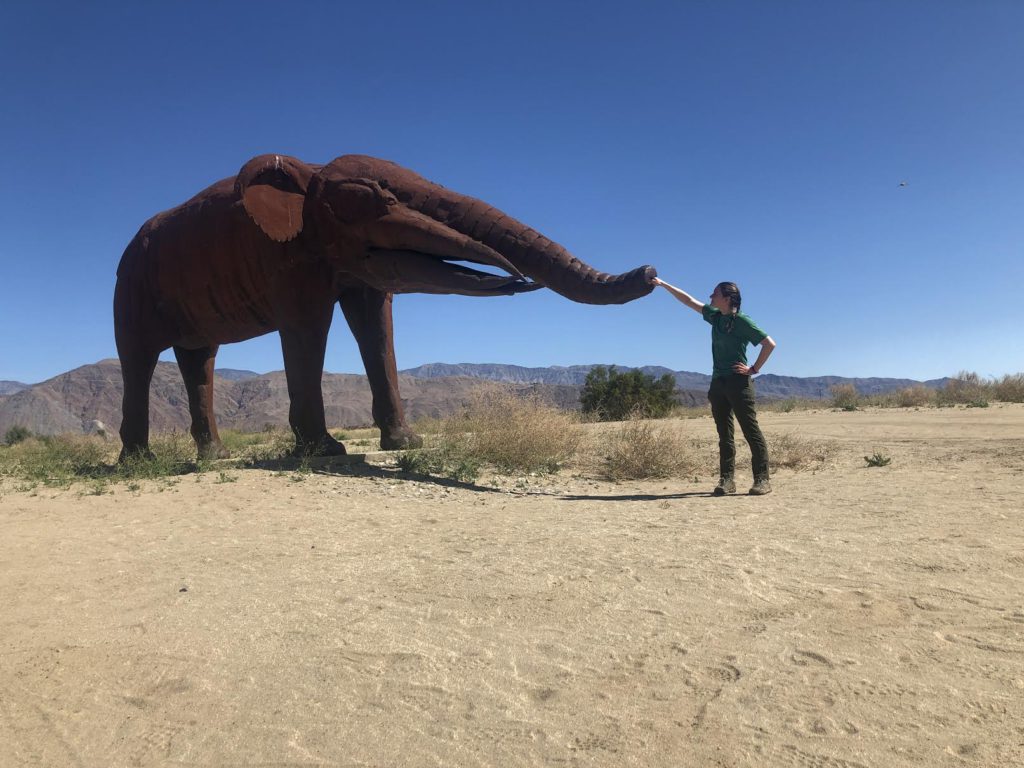
Q: Walk me through your time with ACE? What has been your favorite aspect of being an AmeriCorps Volunteer?
A: I started ACE last year on a 6-month term and got chainsaw and WFA trained during my first two weeks. My first hitches were a bit of an intense introduction—I was placed on the FWPP (Flagstaff Watershed Protection Program) thinning project during stage 2 fire restrictions, which meant I had to start work at 5 am every day and cut as many trees as I safely and efficiently could in four hours (because of the fire restrictions, chainsaw operations were prohibited past 9 am). I was very shaky and uncertain about my chainsaw skills, was absolutely not a morning person, and was still adjusting to the elevation, so it was a bit of a rude awakening, so to speak. But it was a great experience and a really cool project. I look back proudly on those first hitches (some of my favorite ones, in retrospect), and really do feel that having them as my introduction to ACE made me stronger and more adaptable for my other hitches. Since that ongoing fuels reduction project, I have done a handful of other types of conservation work— city infrastructure development, habitat restoration through both invasive species control and new habitat creation, trail maintenance, and trail construction—on many different types of public land across the Southwest. When my 900 hr. term ended I accepted a new 450 hr. term that started at the beginning of this year.
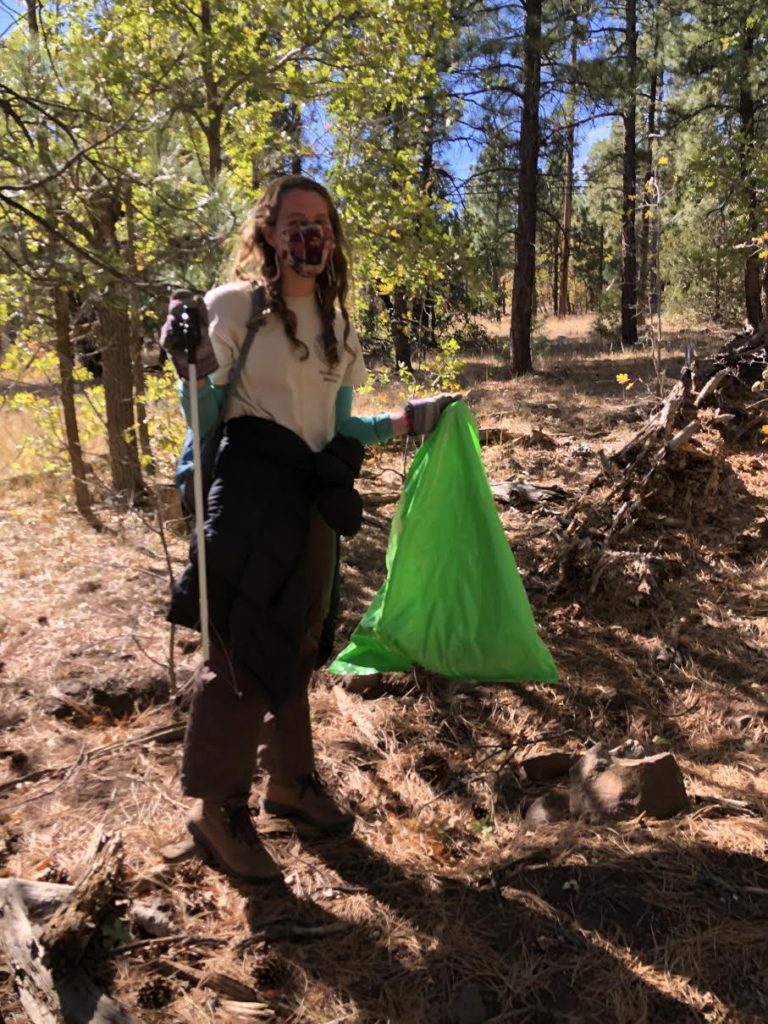
My favorite aspect of being an ACE Conservation Corps Member is having so many eclectic opportunities to develop strong relationships with different types of Southwestern landscapes and ecosystems. AmeriCorps conservation projects mean that one doesn’t just work at a certain outdoor area, but that they live there. Living at my worksites has made me feel so much more immersed in the land; I have learned so much different ecology that I truly feel connected to the Southwest in a way that I don’t think people who don’t do the type of work that ACE Conservation Corpsmembers do could achieve or experience. I can identify about ten different plant species in any Southwest desert I hike in, including native versus non-native species. I pass by creosote and I think of the smoky aroma it fills the desert with when it rains, and then I start thinking about the vanilla scent the huge, stately ponderosa pines in turn give off when it rains. I pass a social trail next to an established trail and get a little sad over the extra strain and impact people are inflicting on sensitive ecosystems. I see a snow goose flying overhead, and think about how complex yet resilient their migration patterns are, and how crucial wildlife refuges are to recreate and sustain their formerly diminishing habitat conditions. I weave through the pockets of ponderosas on the Arizona Trail, notice the orange spray paint on some of the older trunks, and appreciate what this means in terms of saving them. Maybe I’m digressing a little bit into nostalgia, but I really do feel that my service terms have afforded me a stronger relationship with the landscapes I experience out here, and I love that about ACE.
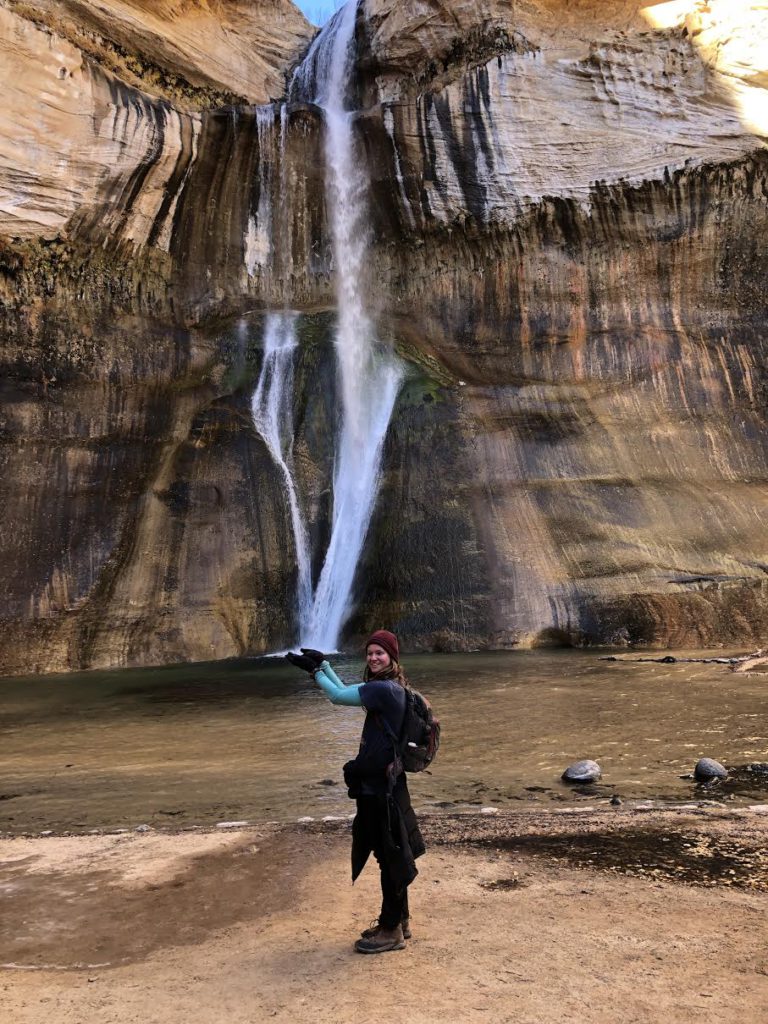
Q: What are you most proud of during your service? Why?
A: I always try to think critically about the service I do, and moreover try to share and encourage this critical thinking among the ACE community. Since I really enjoy writing, the way that I have been doing this is by writing blog posts about ACE experiences and impacts. It’s really important to me to understand why we do the work we do as it relates to conservation and to understand the background or history around the work. I’ve only done a couple writing pieces so far, but have really enjoyed putting them out there and learning a lot in the process.
Q: In what ways did AmeriCorps and ACE shape your life personally and professionally?
A: ACE has given me stronger confidence both in social interactions and especially in learning new skills. I used to get really nervous about learning new techniques on-the-job with people watching me, because I was afraid of messing up and thought this would make people think I wasn’t capable. ACE has taught me that there is ALWAYS a learning curve, no matter the person; most of the time everyone else on the job is on the same page as you learning-wise. You really just have to embrace the mistakes (and even get excited for them) because they mean you are going to learn so much more in the long run. These sentiments that ACE has taught me have in turn greatly grown my self-confidence and have encouraged me to advocate for myself a lot more. If I think I can do something, I try it, even if others are hesitant at first. If I have doubts about a task or a different idea about how to approach something, I speak up for myself, which is something I was often too shy to do in the past. I constantly push myself out of my comfort zone in an encouraging way, which has put me in a position I really never would have dreamed I would be in if you asked me five years ago, or honestly even earlier last year. I was that super shy and quiet kid who didn’t talk to many people and truly hated loud noises, so the fact that I now confidently and eagerly wield a chainsaw as part of my job is a huge step for me. All in all, I see these improvements as both personal and professional assets in my life, and I am grateful that ACE has helped shape my confidence in such ways.

Q: How do you fill your time outside of work?
A: It depends on whether I have six or three days off—if I have six days off I almost always travel to a new nature spot, usually a road trip to a National Park or three :). One of my goals is to visit all the National Parks, and so far I’ve hit about 20 thanks to my ACE free time. If I have three days off I like to stay local and relax. I usually sleep in really late every day, drink coffee all morning, go on neighborhood runs, explore nearby trails, watch a lot of movies, sift through my Spotify Discover Weeklies, write a lot, and connect to poetry.
Q: What comes next? What are your future goals? Any ideas on how you plan to use your AmeriCorps award?
A: I’m not yet sure what will come after ACE, but I would like to become involved in some hands-on wildlife biology/conservation fieldwork. I also hope to become more involved in the science communications field, to inform and excite the public about wildlife, biodiversity, and conservation. I think several years down the road I will probably go to grad school for something wildlife biology or science writing related, and that’s where I will probably use my education award. Until then, I would ideally like to continue working jobs in the field, to stay immersed in the outdoors for as long as I can before grad school or a solely indoors office desk job comes.
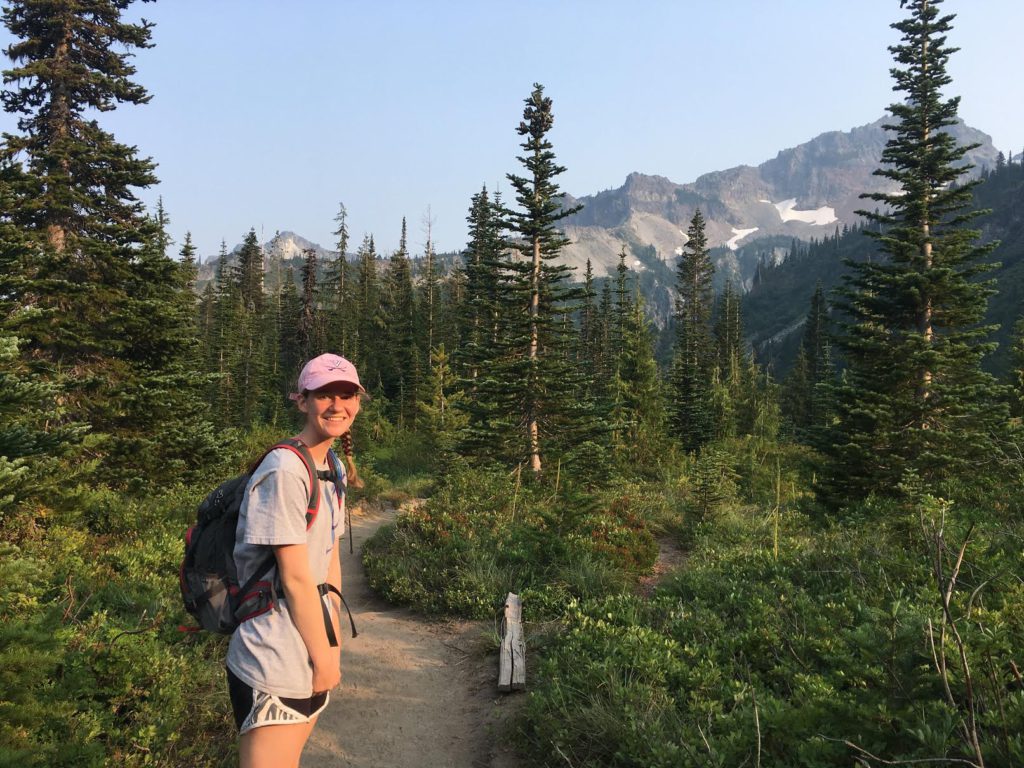
Q: If a prospective member were to ask you what the benefits of becoming an AmeriCorps volunteer, what would you say? A: I would tell them that if they became an AmeriCorps member, they would find themselves in so many new places and situations they never would have even imagined before—instances that would give them multiple varied opportunities for both individual and team growth. I would also tell them that they would be surrounded by a very open, eclectic, and supportive community of people from all different walks of life, and that some of these people would become their closest friends whom they would stay in touch with well after their term ended. Finally, I would tell them that they would be presented with so many different choices for how to grow their skill set in a diverse, well-rounded way.
